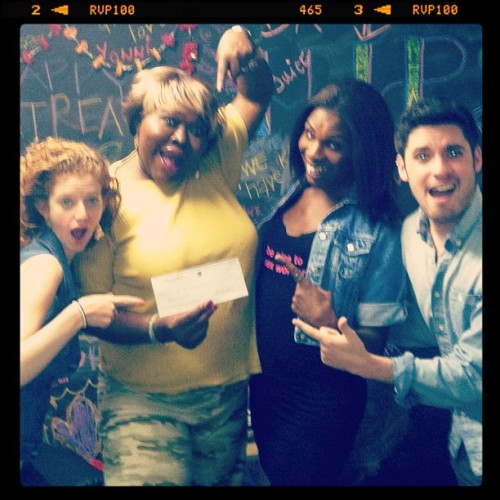I sat alone in my basement apartment at 5:00 a.m., ears ringing, the silence jolting and invasive. I had spent the previous eight hours on the overnight outreach van with my new employers, the aptly titled “HIPS,” or Helping Individual Prostitutes Survive, and I felt at once desperately fatigued and fretfully manic. The night was typical: handing out safer sex and injection drug supplies to sex-workers throughout the city of DC; sharing micro-counseling techniques with four dedicated volunteers; a late night McDonald’s run to stave off sleep and hunger. I also learned a new joke from one of our clients. “When a cop approaches to ask what I be doin’ out here,” she began, “I tell him I’m doing car washes. $300 bucks a pop. And he be like, ‘Why are they so expensive?’” She pauses, and we all lean forward. “’Because,’ I tell him, ‘the blow jobs are free.’”
The emotional dexterity required of an outreach worker is profound. At moments, laughter rings forth as we approach a gaggle of sex-workers on Kelly Street, sharing quips about dates, relationships, children, cops, outfits (“look at that mess of a skirt!”), and slow evenings. At others, we hear stories of violence and trauma, of barriers to services due to stigma, of chipped nails and missed rent payments. We hear stories of ambivalence towards such violence (“it is what it is”), and ways that individuals keep themselves safe (“I carry mace with me everywhere, honey”).
My work at HIPS has been illuminating in ways I could not have previously imagined; the ways our clients move between spaces—of those branded legal and illegal, of dark and light, of safety and danger, of male, female, between, beyond—is both praiseworthy and defeating. Praiseworthy because our clients are strong and capable: defeating because they have to be. We often ask our clients how they keep themselves safe. Some state they avoid known “dangerous areas,” while others display rape whistles. But more often than not, we hear of informal networks on the streets that individuals use to share knowledge, resources, and community. I see queer kinship ties, created families of mothers and aunts and daughters that span generational, linguistic, national, regional, and ideological divides. We see clients referencing and sharing our “bad date sheet” (a sheet with descriptions of violent Johns). We see, quite simply, survival.
At HIPS, we believe our clients are experts in their own lives, that they are equipped with the knowledge to keep themselves safe and healthy in a system that would do everything to see them not survive. And when I see the strength (and difficulties, and ambivalences) from our clients, I cannot help but wonder: what do we, as a country, have at stake in passing judgment upon the complex lives of those engaged in sex-work and/or drug use? How can those most in need of basic care—in need of safer hormone injection supplies, of band aids and alcohol pads and wound care, of food, of shelter, of dignity—be institutionally barred from accessing such services due to stigma?
Stigma haunts those of us engaged in public health equity. It’s the continual shadow of providers and legislators and medical professionals; it intervenes in ways both invisible and blatant, and depressingly, the bodies of our clients are often caught in the cross-fire. We would like to believe that healthcare is, in some way, objective. Sadly such is not the case.
Which brings us back to my basement at 5:00 am, back to where I feel most enlivened and most deflated. While our clients inspire, the unequal healthcare system we all navigate feels insurmountable. It feels as a living being, alive for time immemorial. How can I—how can we—create change in the face of such obstacles?
I am reminded of HIPS’ harm reduction ideology, one that refutes the “all-or-nothing” frameworks that often animate our thinking around complex issues such as stigma, health equity, and activism. Instead of such binary thinking, harm reduction encourages us to meet people where they’re at, to affirm positive life choices—however incremental—and remain non-judgmental throughout. How can we find ways to empower individuals to make healthy decisions despite complex webs of institutional oppression? How can we, as providers, ethically navigate a system that may or may not work in our favor? And ultimately, how can we regain a sense of power in an otherwise disempowered position? These questions both excite and immobilize—they both generate action and leave us (ahem, me) feeling depressed, spoon of ice cream in hand, the salty taste of tears mixing with our sundaes.
But we are, after all, a global community. As Global Health Corps fellows, we have felt inspired to create change, to use our resources and privilege in ways that chip away at this beast of a healthcare system. For change can and does happen. So let us come alive in and through this work. Let us forge meaningful connections. Let us see and be seen. Let us look upon one another with dignity to radically disrupt the current unequal status quo. Let us, in the words of one of HIPS’ clients, “keep doin’ what y’all are doin’. Cause y’all save lives.”

